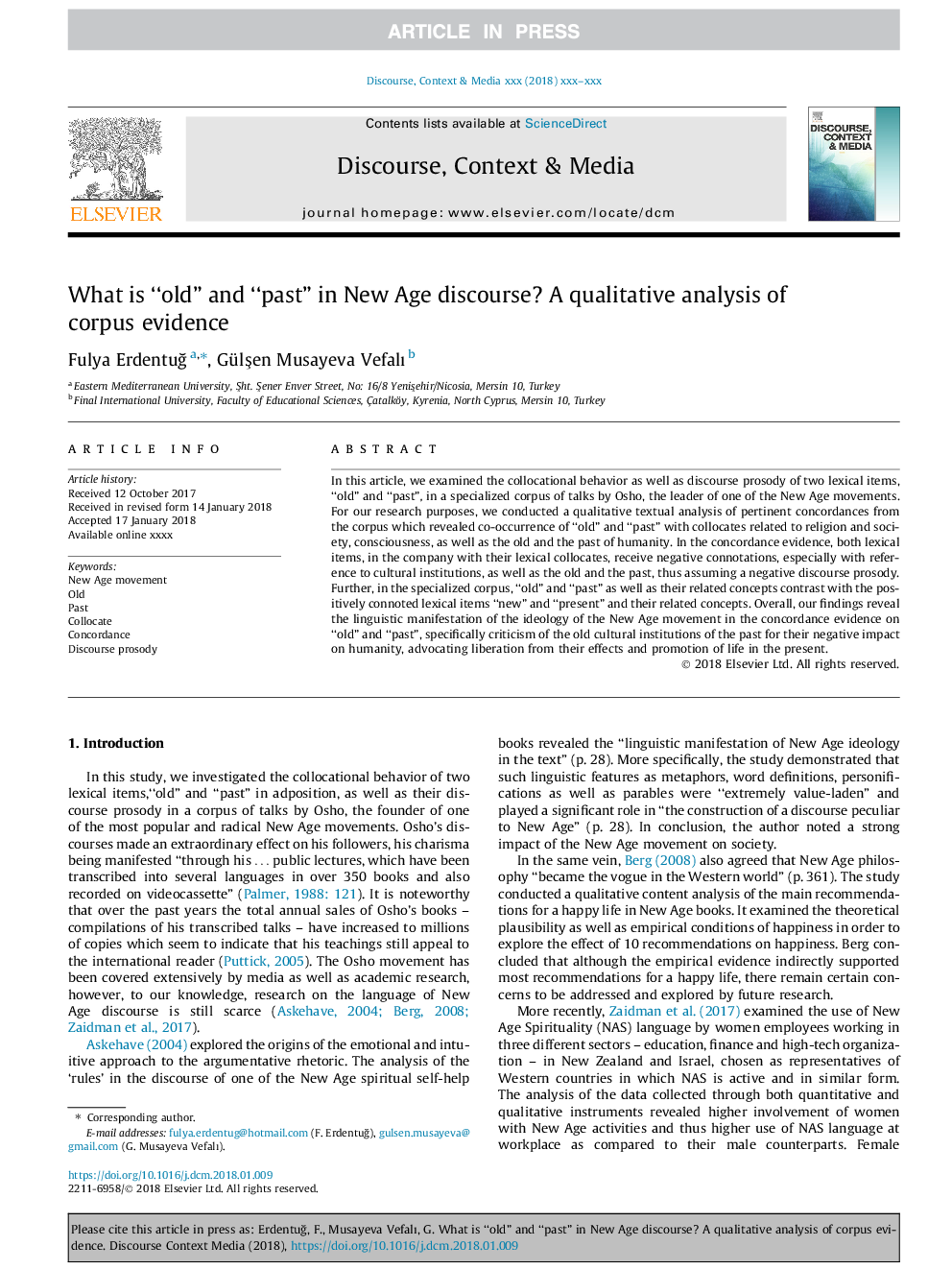| Article ID | Journal | Published Year | Pages | File Type |
|---|---|---|---|---|
| 7532537 | Discourse, Context & Media | 2018 | 7 Pages |
Abstract
In this article, we examined the collocational behavior as well as discourse prosody of two lexical items, “old” and “past”, in a specialized corpus of talks by Osho, the leader of one of the New Age movements. For our research purposes, we conducted a qualitative textual analysis of pertinent concordances from the corpus which revealed co-occurrence of “old” and “past” with collocates related to religion and society, consciousness, as well as the old and the past of humanity. In the concordance evidence, both lexical items, in the company with their lexical collocates, receive negative connotations, especially with reference to cultural institutions, as well as the old and the past, thus assuming a negative discourse prosody. Further, in the specialized corpus, “old” and “past” as well as their related concepts contrast with the positively connoted lexical items “new” and “present” and their related concepts. Overall, our findings reveal the linguistic manifestation of the ideology of the New Age movement in the concordance evidence on “old” and “past”, specifically criticism of the old cultural institutions of the past for their negative impact on humanity, advocating liberation from their effects and promotion of life in the present.
Keywords
Related Topics
Social Sciences and Humanities
Arts and Humanities
Language and Linguistics
Authors
Fulya ErdentuÄ, GülÅen Musayeva Vefalı,
